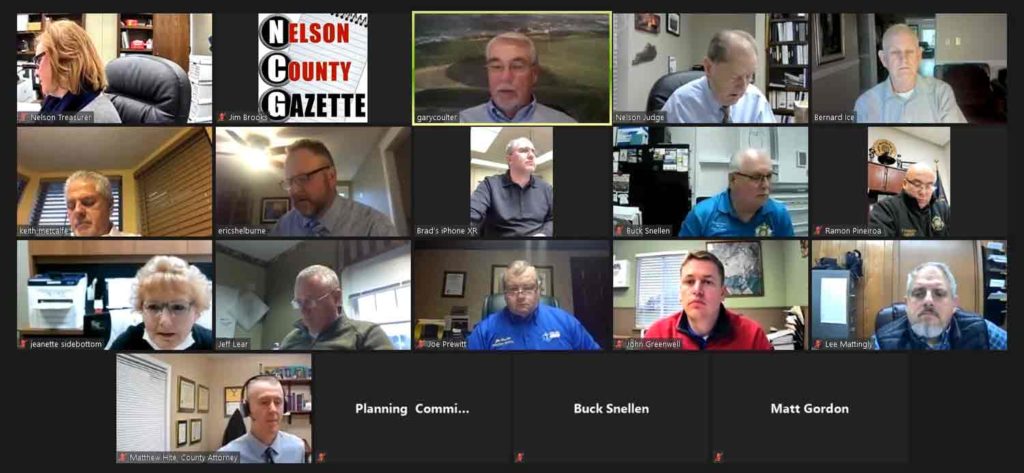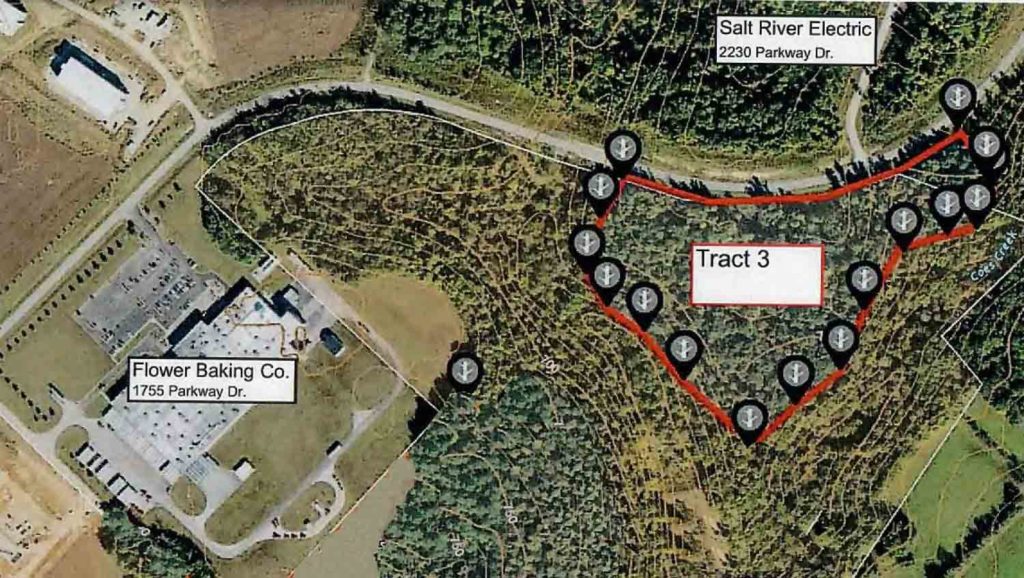Fiscal court discusses regulating use of shipping containers for home storage

By JIM BROOKS
Nelson County Gazette / WBRT Radio
Tuesday, Jan. 5, 2020 — Nelson Fiscal Court debated the merits of adding restrictions on the use of shipping containers as storage buildings during their meeting Tuesday morning.
The discussion boiled down to the question of how deeply should county government insert itself in deciding what sort of outbuildings are appropriate in a subdivision — particularly when the majority of modern subdivisions often address the outbuilding issue in their deed restrictions and covenants.

Magistrate Eric Shelburne voiced concerns about a property owner in Glenview subdivision who had obtained a permit to use a shipping container as a storage building. At least one subdivision resident had complained about the use of the shipping container to Shelburne, who brought the issue up in December during a fiscal court meeting.
Right now, planning and zoning considers the shipping containers to be accessory structures, the same as storage buildings purchased from a home improvement retailer or stick-built by a contractor. If the shipping container is to be located on the property for less than six months, no permit is required, though the building must meet all the required setbacks for the lot. If it is used beyond six months, the property owner must obtain a zoning compliance permit.
Shelburne said the county should enact some type of ordinance to protect property owners from having shipping containers located in a subdivision.
Magistrate Jeff Lear noted that most subdivisions have deed restrictions that would probably have requirements for permitted accessory structures, and the wording in those restrictions might eliminate shipping containers from being used as a storage building option.
County Attorney Matthew Hite said that enforcing a subdivision’s rules are generally done by the Homeowner’s Association. However, many HOAs are dormant and inactive — and may have been inactive for years.
The biggest hurdle for HOAs is having money to pay an attorney for court action necessary to enforce deed restrictions, Hite said.
Shelburne said that deed restrictions don’t have power for enforcement, adding that “you won’t see one of those shipping containers in Maywood.”
Judge Executive Dean Watts said that even if an HOA isn’t organized and active, an individual property owner has the right to take action.
But without sufficient funds collected by dues, an HOA can’t act. The lack of funds is “typically where the wheels fall off,” Hite said. “The barrier isn’t the individual, its the fee to pay the attorney.”
Shelburne’s call for the court to take action to protect property owners in subdivisions didn’t find immediate support from Watts and Magistrates Jeff Lear and Keith Metcalfe, who questioned the need for government to get involved in determining what type of accessory structure is appropriate in a subdivision.
After additional discussion, Watts said he would give the issue some thought, and work on a compromise that could look at regulating the use of the shipping containers as storage buildings and tie that to the size of the lot.
No official action was taken.

INDUSTRIAL PARK LOGGING BID. The magistrates approved the low bid of $55,646 from Bob Ray to log and clear Tract 3 in the Nelson County Industrial Park.
The work will clear the lot and remove the stumps. The contractor will keep the logs. The lot is located on the south side of Parkway Drive across from the Salt River Electric property.
The clearing work is an effort to make the approximately 23 acre tract marketable. About 15 acres of the tract will be suitable for industrial development once it is cleared, Watts said.
Magistrate Metcalfe questioned the expense of the work and if it was worth investing in the property.
Watts said the county has two choices — surplus the lot and sell it, or clear the lot for development. Right now there’s very little property suitable for industrial development, he told the court.
Magistrate Jeff Lear, who sits on the BIDC board, noted that the county knows there’s industries looking to locate here, but the county has no land to show them.
In other business, the court:
— appointed Shelly Bell to the Nelson County Public Library board of trustees;
— approved the Nelson County Clerk’s budget and an order establishing salaries;
— heard that progress is being made on the engineering for the force sewer main that will serve the Nelson County Landfill.
— approved adding the streets in Millwood subdivision to the list of roads maintained by county government.
NEXT UP. The next Nelson Fiscal Court meeting it 9 a.m. Tuesday, Jan. 19, 2021.
-30-






